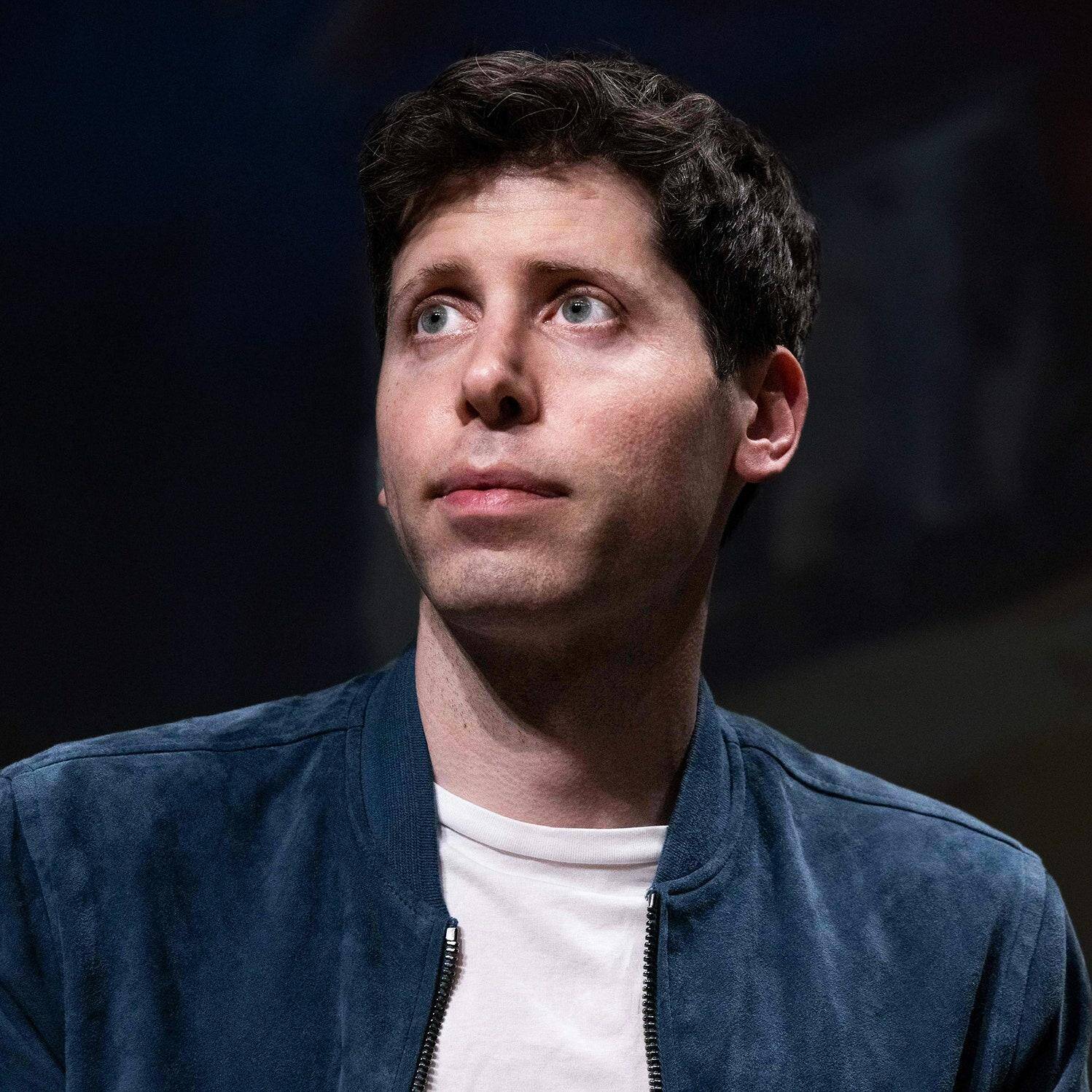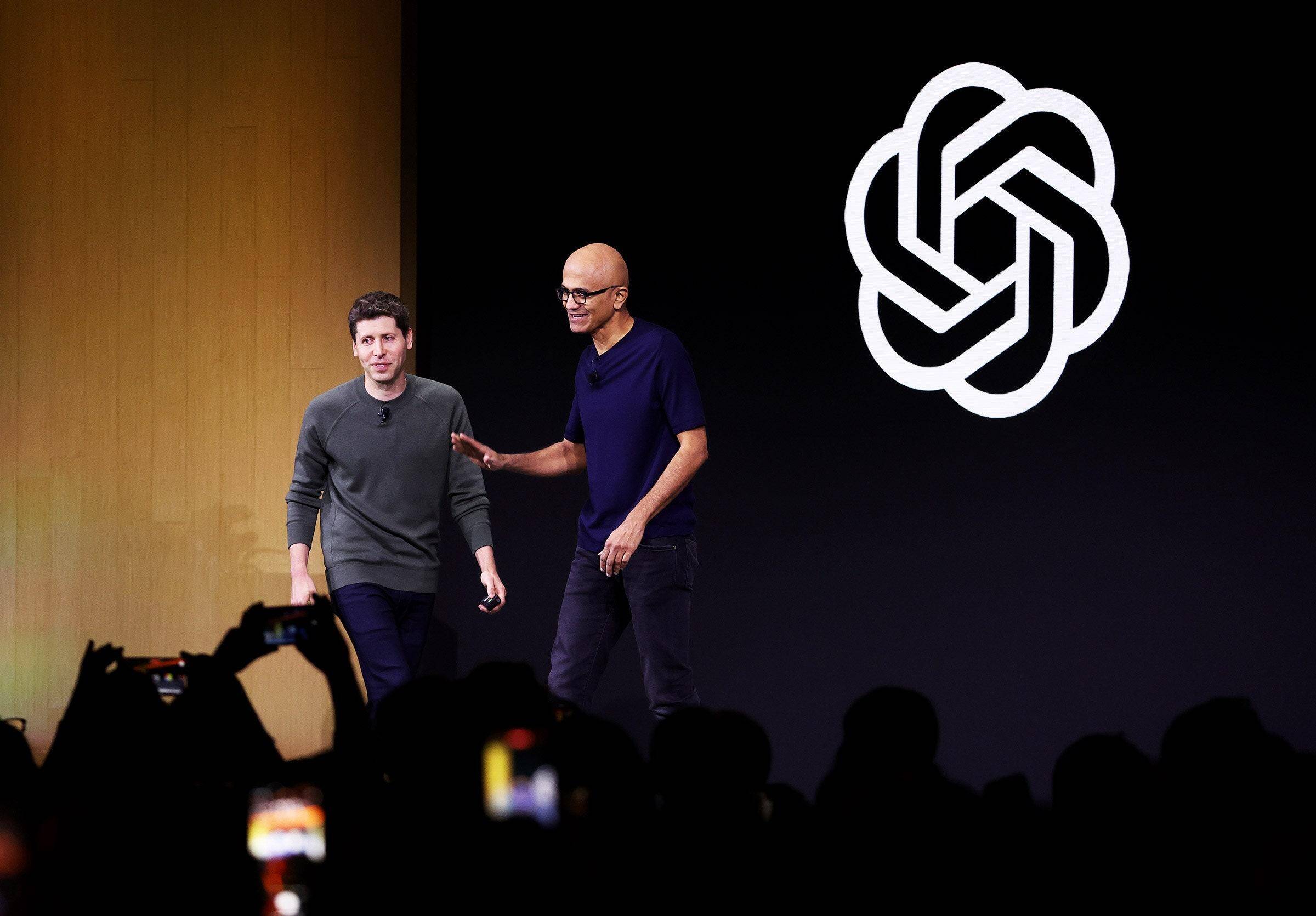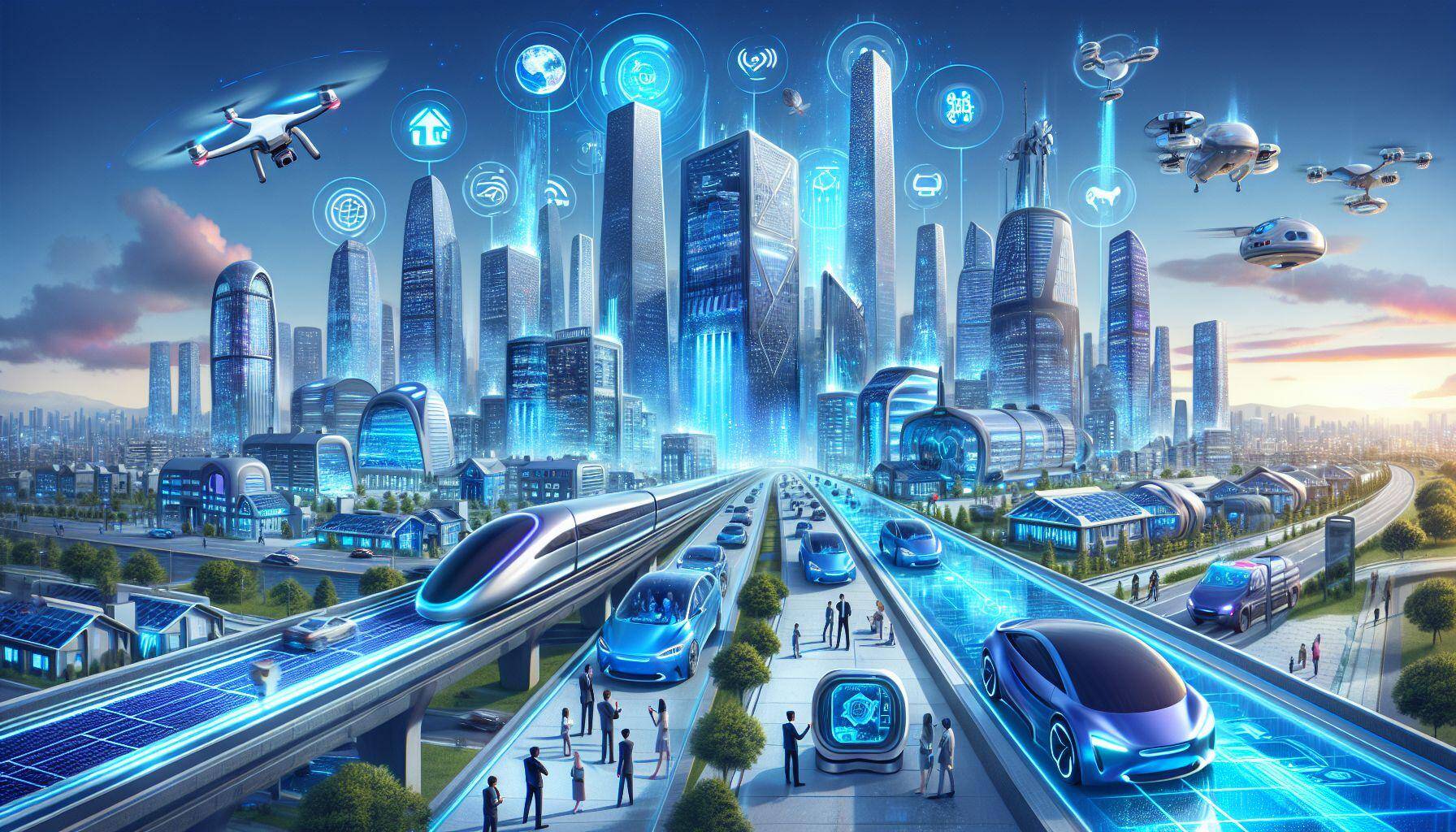In the ever-evolving landscape of technology, where innovation races ahead at an unprecedented pace, few figures stand as prominently at the helm as Sam Altman. As the CEO of OpenAI, Altman has emerged as a pivotal force, driving the conversation around artificial intelligence and it’s limitless potential. this article delves into the remarkable journey of Sam Altman and the groundbreaking initiatives at OpenAI, exploring how their collaborative efforts are not only shaping the present but also carving out the future of technology. as we navigate the complexities of AI, machine learning, and ethical considerations, we uncover the vision that underpins Altman’s leadership and the transformative projects that are redefining how we interact with the digital world. Join us as we explore the intersection of ambition, innovation, and responsibility that characterizes Altman’s mission, poised to influence generations to come.
Table of Contents
- The Visionary Leadership of Sam Altman in Shaping AI Innovation
- OpenAIs contribution to Ethical AI Development and Responsible Usage
- From Research to Real-World Applications: Transforming Industries with openai
- Future directions: Recommendations for Advancing Technology and Society Together
- Q&A
- Key Takeaways

The Visionary Leadership of Sam Altman in Shaping AI Innovation
Sam Altman’s journey through the corridors of technology reveals a steadfast commitment to embracing innovation with a visionary mindset. Under his leadership, OpenAI has become a beacon for artificial intelligence, steering discussions towards ethical frameworks and responsible AI deployment. His approach has fostered a culture of collaboration and clarity, where researchers and developers work hand in hand to push the boundaries of what AI can achieve. key facets of his leadership include:
- Pioneering Research: Prioritizing groundbreaking discoveries that redefine AI capabilities.
- Ethical Standards: Advocating for frameworks that ensure responsible AI use in daily applications.
- Global Collaboration: Encouraging partnerships with academic, governmental, and industry leaders across the globe.
At the heart of Altman’s influence lies a strategic vision that transcends traditional technological development. His foresight in recognizing trends has allowed OpenAI to remain at the forefront of the AI revolution, where rapid advancements often outpace regulatory measures. Through initiatives like the International AI Safety Conference, Altman emphasizes the importance of sharing vital research insights and fostering dialogues that shape the future of technology. Here’s a brief look at some of OpenAI’s prominent projects under his leadership:
| Project Name | Description | Impact |
|---|---|---|
| GPT-3 | A sophisticated language model that generates human-like text. | enhanced natural language understanding across applications. |
| DALL-E | An AI that creates images from textual descriptions. | Transforming creative processes in art and media. |
| Codex | A tool that translates natural language into code. | Revolutionizing software development and programming education. |

OpenAIs Contribution to Ethical AI Development and Responsible Usage
OpenAI has strategically positioned itself at the forefront of ethical AI development, recognizing that the future of technology hinges not only on innovation but also on responsibility. By fostering an environment that encourages dialogue around AI safety,OpenAI is committed to addressing potential risks associated with these powerful technologies. This involves not just a focus on robust algorithms but a broader ethical framework that encompasses transparency, fairness, and accountability in AI applications. The organization employs a multidimensional approach that includes:
- Open Research: Sharing findings with the global community to promote collective understanding.
- Engagement with Stakeholders: Collaborating with diverse voices in tech, academia, and policy to refine ethical guidelines.
- Community Guidelines: Developing frameworks that govern the responsible deployment of AI tools.
- Regular Audits: Conducting assessments to ensure compliance with ethical practices and norms.
In addition to these initiatives, OpenAI has launched various educational programs aimed at instilling a strong foundation in ethical AI among future developers and researchers. These programs emphasize the importance of understanding societal impacts while exploring technical skills. To illustrate OpenAI’s commitment to responsible usage, consider the following framework of principles that guide AI utilization:
| Core Principle | Description |
|---|---|
| Safety | Ensuring AI systems operate without causing harm. |
| Fairness | Aiming for unbiased and equitable AI decision-making. |
| Privacy | Safeguarding personal data while utilizing AI. |
| Collaboration | Working together with various stakeholders to refine best practices. |

From research to Real-World Applications: Transforming Industries with OpenAI
OpenAI has emerged as a transformational force across multiple sectors, merging cutting-edge artificial intelligence with practical applications that enhance productivity and innovation. Organizations are leveraging OpenAI’s models not just to streamline operations but to elevate the entire scope of their services.Here are key industries experiencing significant change:
- Healthcare: AI-driven diagnostics,personalized treatment plans,and virtual health assistants are reshaping patient care and operational efficiency.
- Finance: Algorithmic trading,fraud detection,and risk assessment tools powered by OpenAI accelerate decision-making and safeguard assets.
- Education: Customized learning experiences and automated grading systems help educators focus more on teaching and less on administrative tasks.
- Entertainment: Content creation, deepfake technology, and advice systems are redefining how audiences engage with media.
As industries adopt these advanced AI solutions, the implications for business processes are profound. For example, companies can now utilize AI to analyze vast data sets quickly, enabling them to spot trends and make informed decisions faster than ever before. The impact can be seen in:
| Industry | AI Application | Benefits |
|---|---|---|
| Manufacturing | Predictive Maintenance | Reduction in downtime and costs |
| Retail | Inventory Management | Optimized stock levels and improved sales |
| Transportation | Route Optimization | Enhanced delivery speed and reduced fuel consumption |
By committing to ethical AI practices and fostering collaborations across sectors, OpenAI is not just shaping technological advancements; it is indeed fostering a future where AI serves humanity’s best interests and drives enduring growth.

Future Directions: Recommendations for Advancing Technology and Society Together
As technology continues to evolve at an unprecedented pace, it is crucial for innovators, leaders, and society as a whole to align their efforts and harness this momentum for the greater good. To achieve this, several key strategies can be pursued:
- foster interdisciplinary collaboration: Encourage partnerships between technologists, ethicists, policymakers, and social scientists to ensure that new developments are grounded in a thorough understanding of their societal implications.
- Prioritize ethical frameworks: Establish clear guidelines and ethical standards for the design and deployment of AI systems that prioritize human welfare and mitigate potential harms.
- Enhance public engagement: Create platforms for dialogue where the public can voice their concerns, experiences, and hopes regarding technological advancements, ensuring that diverse perspectives inform decision-making.
To effectively navigate the relationship between technology and society, it is also essential to adopt a forward-thinking approach towards education and workforce development. Educational institutions should:
| Strategy | Description |
|---|---|
| Integrate technology in curricula | Incorporate coding, AI literacy, and data analysis into various subjects to prepare students for a technology-driven future. |
| Promote lifelong learning | Encourage continuous education programs that adapt to technological changes, allowing professionals to stay relevant. |
| Support ethical technology workshops | offer training sessions focused on the ethical implications of technology to empower future innovators. |
By prioritizing these transformative strategies, society can not only keep pace with rapid technological developments but can also ensure that such advancements contribute positively to the human experiance, paving the way for a future where technology and humanity thrive together.
Q&A
Q&A: Sam Altman and OpenAI: Pioneering the Future of Technology
Q: Who is Sam Altman, and what role does he play in OpenAI? A: sam Altman is a prominent entrepreneur and investor, best known for his leadership at OpenAI, where he serves as CEO. Under his guidance, the organization has evolved into a key player in artificial intelligence, charting new territories in research and deployment while balancing ethical considerations.
Q: What are the core missions of OpenAI? A: OpenAI’s core missions include advancing digital intelligence in a way that is safe and beneficial for humanity. The organization aims to ensure that artificial general intelligence (AGI) is developed transparently and that its benefits are shared broadly across society rather than concentrated in a few hands.
Q: How has Altman influenced the direction of OpenAI? A: Altman has emphasized the importance of safety and ethics in AI development, influencing OpenAI to prioritize responsible AI practices. His vision of making advanced technologies accessible and beneficial to all has driven initiatives such as collaboration with policymakers and a commitment to transparency.
Q: What are some of the key projects or technologies developed under Altman’s leadership? A: Notable projects include the GPT series of language models, which have made waves in natural language processing and understanding. Additionally,OpenAI has explored advancements in reinforcement learning and robotics,all while fostering an ecosystem for AI research collaboration.
Q: How does OpenAI address concerns about AI safety and ethics? A: OpenAI actively engages with ethical frameworks and guidelines to navigate the complexities of AI deployment. This includes research into AI alignment—ensuring that AI systems act in ways consistent with human values and intentions. OpenAI also encourages ongoing discourse around the societal implications of AI technologies.
Q: What is the meaning of OpenAI’s commitment to open research? A: OpenAI’s commitment to open research stems from the belief that collaboration accelerates innovation and addresses challenges more effectively. By sharing research, tools, and datasets with the global community, OpenAI aims to foster a collaborative environment that benefits all researchers and developers in the AI field.
Q: How has the relationship between OpenAI and the broader tech industry evolved? A: The relationship has become increasingly collaborative, with OpenAI partnering with tech giants and startups alike to pool resources and knowledge. These partnerships enhance the development of AI technologies and promote responsible practices across the industry, establishing a collective approach to managing AI’s potential and risks.
Q: In what ways might Altman and openai shape the future of technology? A: Altman and OpenAI are poised to shape the future of technology through their commitment to developing AGI that supports human flourishing. By influencing public policy, setting industry standards, and driving technical innovation, they seek to ensure that technological advancements align with societal needs, aiming for a future where AI enhances rather than detracts from the human experience.
Q: What challenges lie ahead for Altman and OpenAI? A: Challenges include navigating the rapid pace of AI advancements, managing public trust, addressing regulatory concerns, and ensuring equitable access to AI benefits. OpenAI must balance innovation with ethical considerations, all while remaining clear about its motives and actions in a landscape rife with scrutiny and competition.
Key Takeaways
Sam Altman’s vision for OpenAI reflects a pivotal moment in technology’s evolution, where ambition, ethics, and innovation intertwine. As the landscape of artificial intelligence continues to shift beneath our feet,Altman and his team stand at the forefront,guiding a discourse that challenges us to ponder not just what technology can do,but what it should do. Their journey underscores a broader narrative—one where the creation of advanced machines is paralleled by our responsibility to wield them wisely.As we look toward the future, the impact of OpenAI’s advancements will undoubtedly reverberate across industries and cultures, inviting us to imagine a world where human potential is amplified by the very technologies we create.The path ahead might potentially be uncertain, but with leaders like Altman at the helm, it is indeed clear that the conversation about the future of technology is just beginning.





